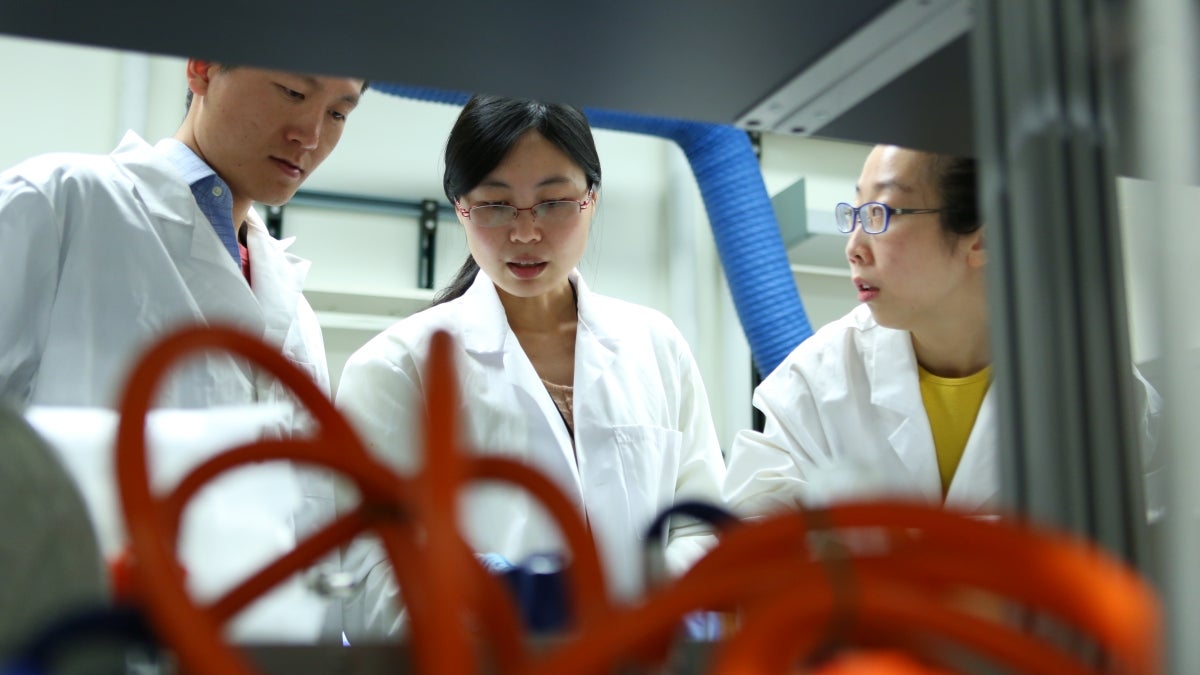So, you’ve started your postdoc experience. Whether you are here because you love to research or because you are pursuing a career in academia, there are a few tips that will help you get the most out of your experience. We asked postdoc Sean Seyler, a graduate research assistant for Arizona State University's Department of Physics, to share some tips for success that all postdocs should know.
1. Take ownership of your project
"Because your postdoc project often involves taking on new ideas and learning new skills from where you left off as a grad student, it can sometimes feel like you are starting back off at the bottom. But try not to let that stop you — find a way to seize that confidence: Take ownership of your niche."
2. Do your reading
"Obviously, you have to do the research. Take this opportunity to challenge yourself — you’re free to find what can be done to expand the knowledge. Search out those boundaries and see if you can cross them."
3. Don’t let grant-writing scare you off
"The grant-writing process can look intimidating or sound boring, but it is crucial for defining your research. In addition to the clear benefits of funding and publicity, being open and sharing your writing with other people will help you get the feedback and collaboration you will need to build confidence. If you work in a vacuum, you feel very insecure."
4. Learn how to package your ideas
"It can’t always be a 40-page paper. In fact, it shouldn’t. Wherever it leads, your career will be punctuated by the need to express your ideas quickly and concisely, and there is no better time to develop this skill than now. Focus — ask yourself how you can take these new ideas and package them into a story."
5. Find your own style
"While your work as a student was likely determined by the structure of your teacher’s assignments and the guidance of your advisers, now that you are beginning your career as an independent academic it is time to define your personal style. How do you work best? How do you think about problems that need to be solved, and what’s your approach to research? Refine your voice and writing style, and hone your presenting techniques. The habits you form now will characterize your career — make them your own."
6. Do important work
"There is a staggering amount of research literature out there. Thousands of papers may be relevant to what interest you. It’s a lot to take in and quite intimidating. Don’t feel too tempted to contribute to the noise. You need to publish — this is how you share your work and package your ideas — but don’t publish for the sake of publishing.
"Likewise, finding oneself fixating too much on 'checking the boxes' is a distraction from doing excellent scientific work. Resist the urge to compare your projects to anyone else’s, primarily if you are focusing on the appearance of the work, like the number of publications and presentations, more than the work itself. You are the expert on your project — and you are the only one who knows where it should be.
"Focus on what you truly think is important. And, if you find yourself lost in the noise, revisit your curiosity. Getting back to the heart of why you are doing that project in the first place will help clear things up. Your interest will keep you honest."
7. It’s OK to express vulnerability
"The first time you participate in a fellowship or present at a prominent conference can be hugely intimidating. Surrounded by experts and award-winning scientists, it’s natural to feel a little starstruck, and imposter syndrome settles in pretty quickly thereafter. It’s helpful to remember that everyone feels that way at some point. What’s more, it is perfectly OK to express vulnerability. It makes it easier to ask for help, and learning to ask for help is part of the postdoc process. No one knows everything about everything.
"If you see someone whose project seems to be going very well, or whose progress or method you admire, talk to them. Share ideas; learn from them. Only good can come from being open to new ideas."
ASU's Graduate Academic Support Center offers a dynamic, supportive learning environment and programs for ASU students enrolled in any graduate certificate or graduate degree program. Contact them for more information.
More Sun Devil community

Supporters show their generosity during Sun Devil Giving Day 2025
Thousands of Arizona State University supporters from across the globe came together on Sun Devil Giving Day on March 20 to give…

New ASU women's basketball coach has sights set on championships
Molly Miller apologized for being a few minutes late for her Zoom interview Sunday afternoon.No apology was necessary.It’s been a…
SolarSPELL wins 'best in show' award at South by Southwest
Arizona State University professors from a variety of disciplines made a big splash at the South by Southwest festival of…


